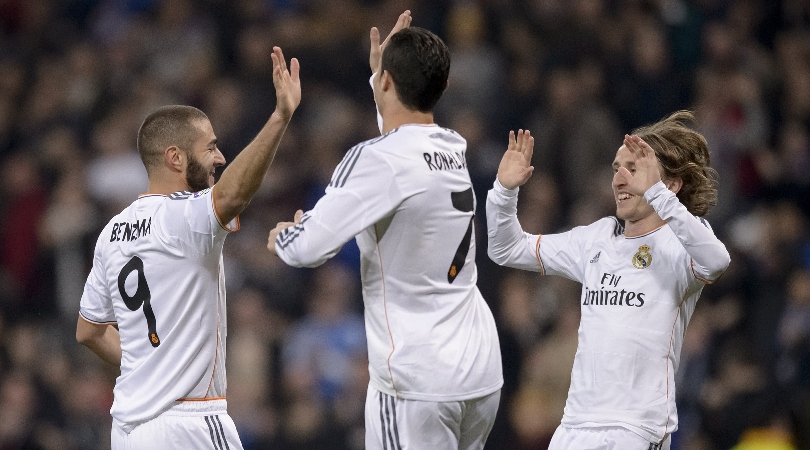82: New Zealand's All Whites win hearts and minds - just not any points
New Zealand's famously resolute showing in South Africa in 2010 wasn't the first time the All Whites have made friends and influenced people at the world's biggest sporting event, as Neil Billingham explains...
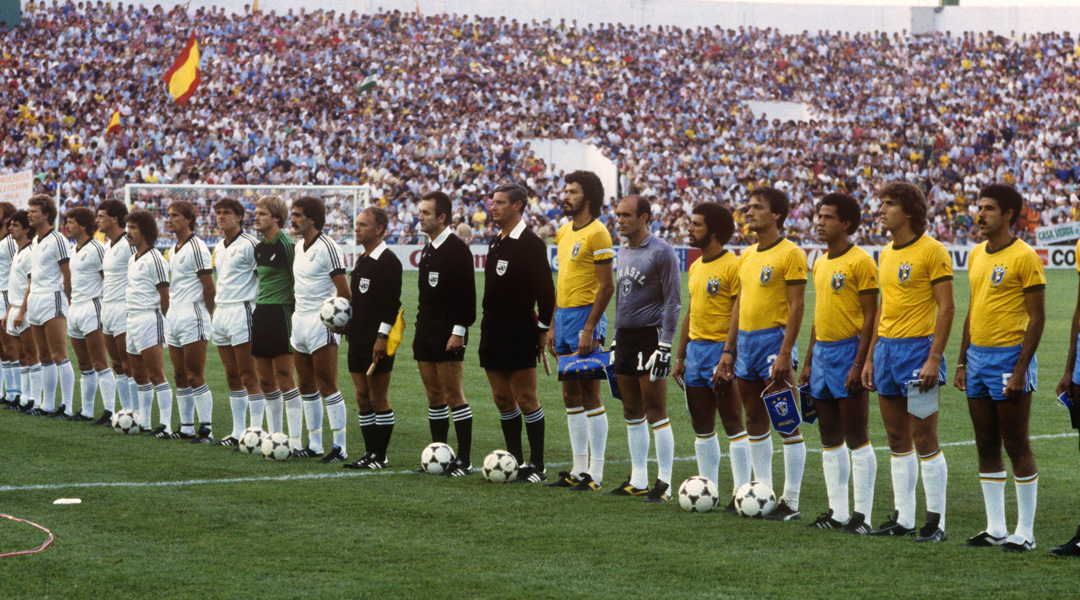
The slightly grainy TV images show a relaxed set of footballers in white tracksuits enjoying their lunch on the veranda of their sun-drenched Marbella hotel.
FIFA's official film for the 1982 World Cup depicts a New Zealand team loving every minute of their time in Spain despite many pundits questioning whether they have the right to be there at all.
"Ian St John said he thought it was a pity that FIFA had allowed such small teams to play at the World Cup and predicted New Zealand could lose some matches by a cricket score" says John Adshead, the 'All Whites' English coach.
When Scotland went 3-0 up before half-time in Group 6's opening match, Saint's forecast for looked credible. But New Zealand had earned the right to be in Spain, traveling 60,000 miles in their qualification campaign to beat teams like China, Saudi Arabia and rivals Australia. When the second half began in Malaga the critics were soon silenced.
"We scored two goals early in the second half and then we hit the post," said Adshead. "Suddenly the Scots were rattled and players like Souness and Strachan were arguing amongst themselves. It was great to watch from the sidelines."
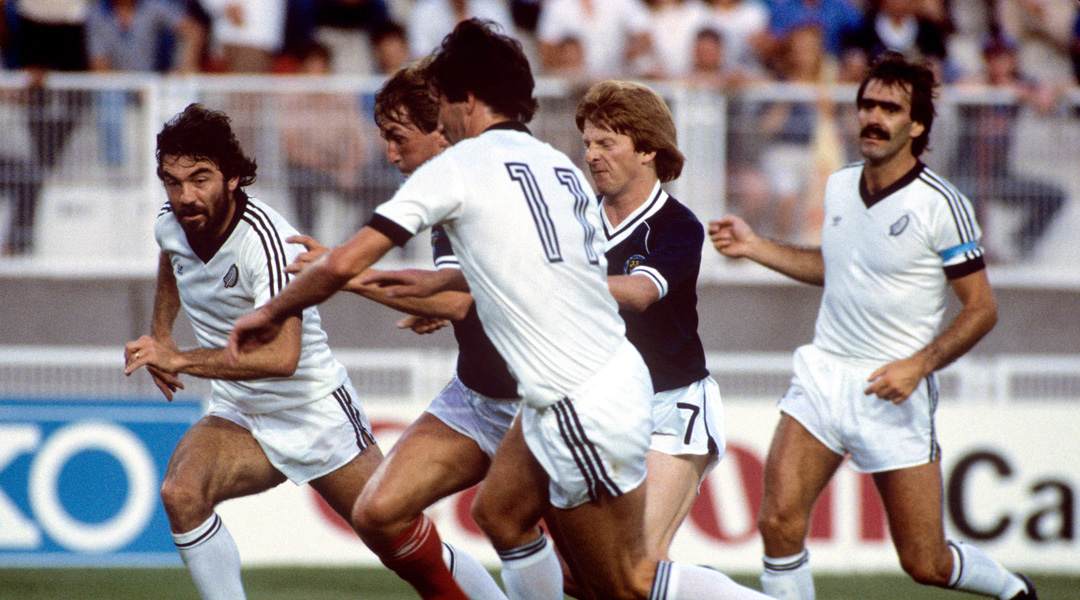
Scotland eventually composed themselves, but despite the 5-2 defeat, Adshead felt a point had been proved. "We gave the Scots a good game. People said the only way we would be able to compete was to kick our opponents, but we were the only team in 1982 not to get a single booking. Afterwards Jock Stein was full of praise for the way we played and he said we had done our country proud."
Managers and pundits weren't the only ones to be won over by the Kiwis. Determined to make the most of their moment in the Spanish spotlight, Adshead opened his team's HQ to the world's media, offering unprecedented access.
Get FourFourTwo Newsletter
The best features, fun and footballing quizzes, straight to your inbox every week.
For their second group match against the Soviet Union Adshead allowed FIFA's TV crew into the Kiwis' dressing room, by hook or by crook. "The TV crew's accreditation meant they couldn't get access to the changing rooms," says Adshead. "So we gave them all New Zealand tracksuits to wear and put the TV equipment in our kits bags. When we arrived at Malaga, security rushed us off the bus and into the changing rooms and once inside the crew filmed everything."
New Zealand became the media darlings of the tournament, and it wasn't just FIFA's filmmakers who were grateful. "Brazil closed all their training sessions to the media so we invited Globo into our hotel to film us at various points in the tournament.
"One day we got some of the lads to put yellow shirts so Globo could then say they've filmed Brazil training! They loved it and the producer told us that our players were household names in Brazil."
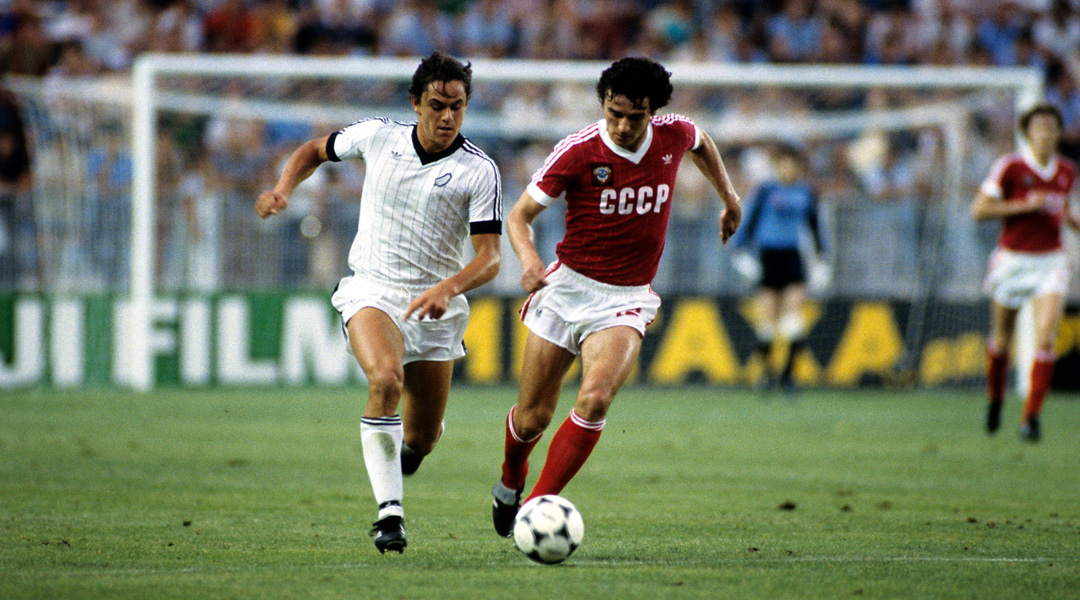
Already qualified for the knockout stages, Brazil fielded a full-strength team for the final group game against Adshead's already-eliminated part-timers. "I have to admit I was a bit star struck," says Ricki Herbert, defender and current All Whites coach.
"It was a dream come true to be playing alongside the likes of Socrates, Falcao and Zico. They were a class team and even though we lost 4-0 it was a fantastic experience, one I'll never forget."
The tournament also had a huge impact at home. For the first time in New Zealand's history, football grabbed the back-page headlines ahead of rugby.
In 1981, South Africa's Springboks toured New Zealand but the tour's first match in Hamilton was stopped after anti-apartheid protesters invaded the pitch. Riots broke out in Hamilton's streets and New Zealand rugby was dividing public opinion.
"Before we went to Spain in 1982 rugby was in a mess", says Adshead. "Then the All Whites came along and started to win some matches, so the whole country got behind the football team for the World Cup."
Briefly, football was No.1.
1982's other World Cup tiddlers...
Cameroon
First-time World Cup participants Cameroon left Spain feeling cheated - and rightly so. In their opening game against Peru, Roger Milla had a goal wrongly disallowed for offside and the match ended 0-0.
Their next two matches were battling draws with far higher-ranked opponents: they contained Poland in a drab, scoreless affair before fighting out a 1-1 with eventual winners Italy, Gregoire Mbida grabbing his nation's historic first World Cup strike.
But the Indomitable Lions were eliminated from the tournament on goal difference. Had Milla's Peru goal been allowed, Italy would have been on the plane instead, and most of us would never have heard of Paulo Rossi...
Kuwait
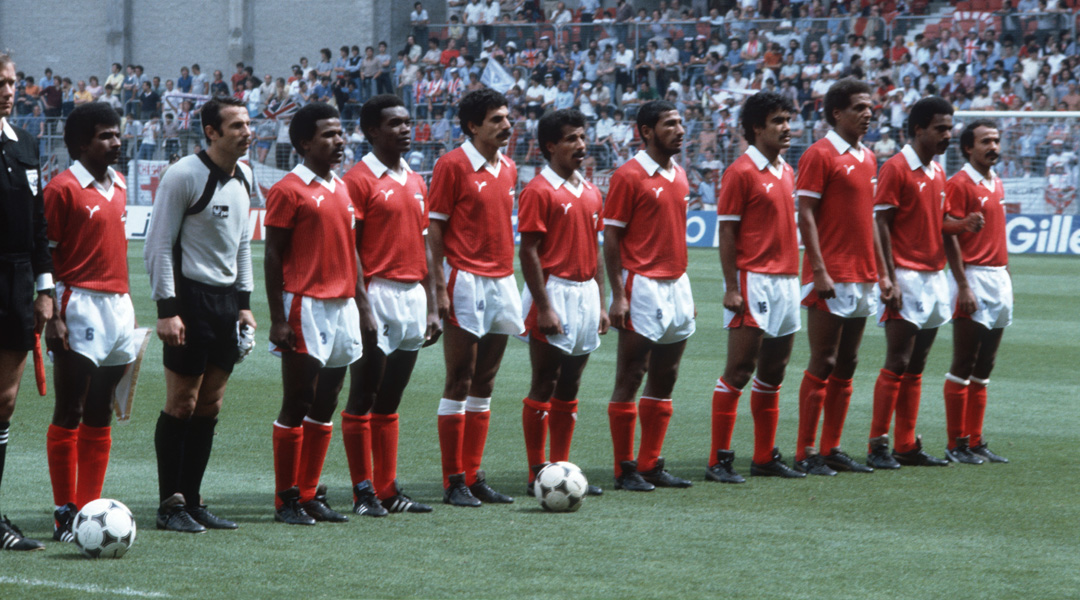
The tiny Middle Eastern nation's solo World Cup participation is best remembered for an enraged sheikh invading the pitch - but it's also worth sparing a thought for the players.
They fought out a decent 1-1 draw with Czechoslovakia (goalscorer Faisal Al-Dakhil is still hailed as 'the King' in his homeland as a result), and restricted England to a scrappy 1-0 win.
But it was during their fixture with France that the fateful moment occurred: France scored while some Kuwaiti players thought the whistle had blown: they walked off in protest, and only resumed after the intervention of their furious leader Sheikh Fahad Al Ahmed.
Eight years later, the royal was kidnapped by Saddam Hussein's troops, shot dead and his body run over by a tank.
Honduras
While El Salvador found themselves embarrassingly out of their depth in Spain , their neighbours and bitter enemies Honduras fared much better.
Having become CONCACAF champions in 1981, Los Catrachos began the tournament confidently, sharing a 1-1 draw with hosts Spain in a game they could have won. They then drew 1-1 with Northern Ireland, giving them a shot at making the second round, but couldn't quite deliver in the final game against Yugoslavia, losing 1-0.
They'll get another pop in 2010, though: Honduras qualified for their second ever World Cup - beating old pals El Salvador to clinch the crucial points.
